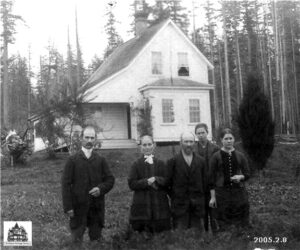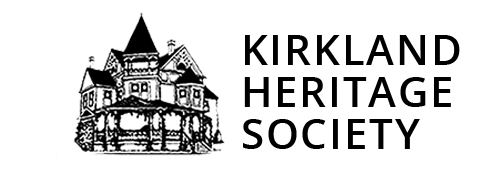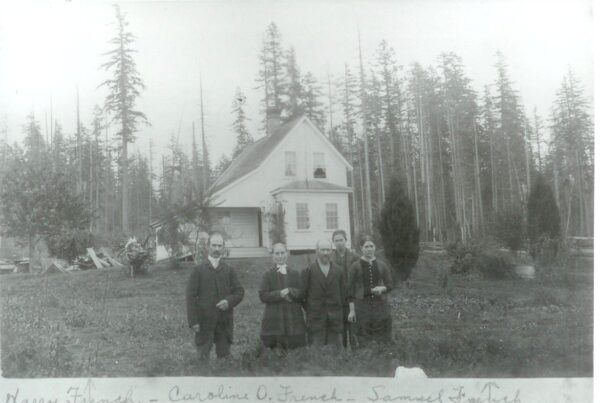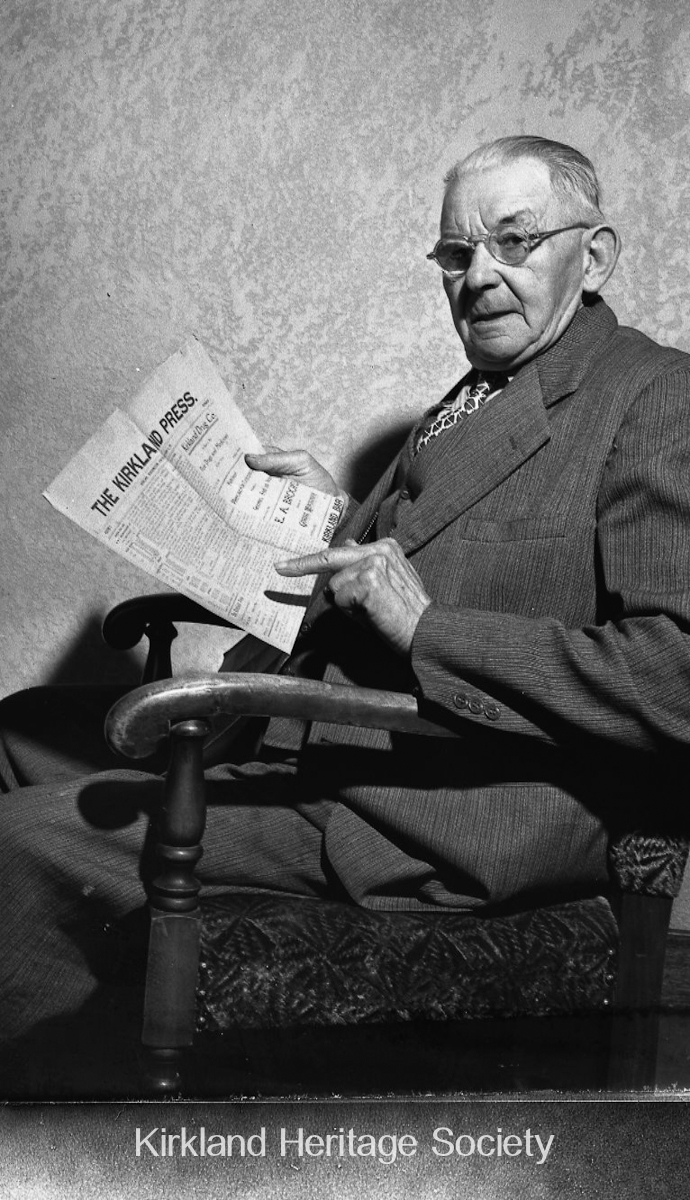 Harry D. French’s journal is not a window into his soul. It is a peek into his life, and that of the other early settlers in Pleasant Bay. By the time Harry put pen to paper in 1880, he was in his early 30s, and his family was one of several living in our area.
Harry D. French’s journal is not a window into his soul. It is a peek into his life, and that of the other early settlers in Pleasant Bay. By the time Harry put pen to paper in 1880, he was in his early 30s, and his family was one of several living in our area.
Originally from Maine, he arrived here in 1872 with his parents —Samuel and Caroline French. When they bought the Smith’s waterfront homestead, their only other neighbors were the original Native American inhabitants and the Popham-McGregors. The French family named the area Pleasant Bay. Harry acquired 80 acres, built a cabin and later a house (which exists today but in a different location).
Harry’s journal entries span over a decade and highlight the vagaries of a northwest winter, from a “furious” wind and 33 inches of snow to rain which “poured hard for fifteen hours.” As a farmer, it is fitting that he was so focused on the weather, the rising level of the lake, and an April frost, which destroyed his strawberry crop. His running tally of “farm produce sold” reminds us that his various crops are his livelihood, although he has forays to the gold mines on Ruby Creek and records that he spent 32 days working on “our Church.”
Harry was a busy man. He tells us about the Literary Club’s weekly meetings, which covered reading and “criticisms of bad pronunciations,” and the flourishing Band of Hope Society. But it is his cabin that seems to take on a life of its own and is the focal point for a burgeoning community. It was a Sunday school for about a year, the place where the First Church of Christ of Pleasant Bay was organized, and eventually a school.
In 1881, Mrs. Houghton of Boston donated “a fine bell” for the church, and Harry was one of a small group of men who braved the “strong N.W. wind” in a scow to take delivery of the 615 pound bell. We know that this was a momentous event for the local residents because, as Harry writes on May 29 “the people of this place have finally decided to call it Houghton.”
There are snippets of history. Harry attended a reception for President Hayes and his wife in Seattle in October, 1880, and notes that President Garfield was “mortally wounded” on July 2, 1881. We feel his sadness on September 20 as he writes that the President has “passed away after 80 days of suffering—endured patiently—remarkably so.”
But it is Harry’s painful experience with frost bite that struck a sympathetic cord. On March 13, 1880, he arrived home “crippled with a frozen foot” when he had the misfortune to fall in Canyon Creek and get his feet wet. He is not able to walk again until the end of May, and refers to this traumatic event as the “night I will never forget.”
Now that I know him, Houghton will always be “Harrystown” for me.
By Irene Vlitos-Rowe
Meet the Neighbors
1871: Popham -McGregor family built their lakeshore cabin.
1872: The Frenches bought homestead, and are followed by the O’Connor, Church and DeMott families.
1876: After first moving to Rose Hill, Dorr and Eliza Forbes settled in Juanita. Other homesteaders arrived, including the Curtis, Fish, and Northup families.
1879: Reverend Samuel Greene founded the First Church of Christ of Pleasant Bay in 1880, and was its pastor until 1887.
Sources: Kirkland Heritage Society; Alan Stein; Our Foundering Fathers, Arline Ely; Myrtle Cecelia Robertson Typescripts, 1981. UW Libraries, Special Collections.
A version of this article appeared in the Kirkland Reporter on July 23, 2008



